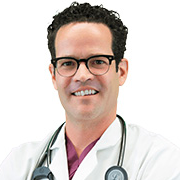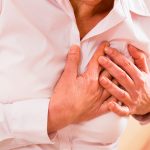Due to the boom in commercial coffee businesses and local coffee shops, there has been a significant increase in caffeine intake among adults, adolescents, and children over the past decade. This has also led to increased additive caffeine in common foods and energy drinks. All of this leads us to the question: How much caffeine is too much caffeine?
Caffeine is a drug
Caffeine is the only drug that is present naturally or added to widely-consumed foods. In fact, caffeine is the most widely consumed psychoactive drug in the world, and one of the most comprehensively studied ingredients in our food supply. It is mildly addictive, which is one possible reason why makers of soft drinks add it to their products. Many coffee drinkers experience withdrawal symptoms such as headaches, irritability, sleeplessness, and lethargy or fatigue when they stop drinking coffee. Like any drug, the effects of caffeine on the body are not necessarily wholly good or wholly bad. Caffeine is a substance that may boost your mood, metabolism, and mental and physical performance. Recent estimates in adults suggest that about 85% of adults in the US regularly consume caffeine, with an average daily intake around 180 milligrams per day, about the amount of caffeine found in two eight-ounce cups of coffee.
Historically, the addition of caffeine was limited to soda-type beverages. Over the past decade, caffeine has been added to a diverse variety of foods and non-food items to promote arousal, alertness, energy, and elevated mood. The recent increase in caffeine-containing food products and energy drinks, as well as changes in patterns of consumption of the more traditional sources of caffeine, has increased scrutiny by health authorities and regulatory bodies of the overall consumption of caffeine and its potential cumulative effects on behavior and body physiology. Of particular concern is the rate of caffeine intake among populations potentially vulnerable to its negative effects.
Health and regulatory authorities have recently highlighted the risk of consumption of caffeine among pregnant and lactating women, children and adolescents, young adults, and people with underlying heart and health conditions.
Caffeine content in food and beverages
Coffee
A 15 to 20-ounce serving ranges anywhere from 150 to 400 milligrams per serving. The average amount of caffeine in an eight-ounce cup of coffee is about 95 milligrams, but we do not drink coffee as our grandparents did. They had a cup or two of Joe in the morning to get the day started. We go and get a huge cup of coffee, and that influences the caffeine intake.
The amount of caffeine in coffee depends on many factors:
- Type of coffee beans – there are many varieties of coffee beans available, which may naturally contain different amounts of caffeine.
- The roasting process – lighter roasts have more caffeine than darker roasts, although the darker roasts tend to have a more rich, deeper flavor.
- Type of coffee – the caffeine content can vary significantly between regularly brewed coffee, espresso, instant coffee and decaf coffee. Yes — decaf coffee does contain small amounts of caffeine, typically seven to 15 milligrams per eight-ounce cup.
- Serving size – one cup of coffee can range anywhere from 300 to 700 millilitres or one to 24 ounces, greatly affecting the total caffeine content that you’re taking in.
Teas
Earl Grey tea contains about 110 milligrams per serving, the highest amount of caffeine amongst teas. The typical black tea ranges between 50 and 80 milligrams per serving. Iced tea ranges from 50 to 60 milligrams per serving, and green tea contains about 30 to 50 grams per serving.
Soft drinks and energy drinks
Most soft drinks range between 35 and 50 milligrams per serving. Energy drinks can vary wildly between 100 and 350 milligrams per serving.
Chocolate
Chocolate contains caffeine, typically between eight and 15 milligrams per serving, though the amount of caffeine in chocolate varies by the percentage of cocoa it contains.
Medication
Certain medications contain caffeine, like Excedrin and Mydol, about 60 milligrams per dose. It’s included because research has shown that the addition of caffeine improves the potency of certain pain medications. Over the counter weight loss supplements typically contain caffeine as well.
Caffeine has a relatively long half-life in most individuals, ranging from three to seven hours.
Risks and Benefits of Consuming Caffeine
We do know that caffeine has some benefits for mental alertness and mental performance. Coffee and tea are also high in antioxidants and many studies show that they can be potentially good for your health.
However, getting too much caffeine is linked to adverse health effects like anxiety, insomnia, heart palpitations, and restlessness. Research has concluded that consuming four to 500 milligrams of caffeine a day is generally not associated with adverse effects in most people. This is about six milligrams per kilogram body weight or three milligrams per pound body weight, an average of four to six eight-ounce cups of coffee a day. That being said, caffeine affects different people in widely different ways. Some are very sensitive to it and others can consume large amounts without having negative side effects. This is largely due to genetic differences.
Caffeine and coffee may, in fact, reduce risk factors for certain conditions like gallbladder disease, Parkinson’s disease, and type two diabetes. However, it can worsen certain health conditions such as aggressive and violent behavior, anxiety, heart arrhythmias or palpitations, bipolar disorders, essential tremors, fibrous cystic breasts changes, GERD or acid reflux, high blood pressure and hypertension, insomnia, restless leg syndrome, hypoglycemia or low blood sugar, migraine headaches, and it can negatively affect bone mass density and contribute to osteoporosis. There’s a higher risk of miscarriage in pregnant women who consume large amounts of caffeine. If you have either irritable bladder syndrome or irritable bowel syndrome, it can worsen those symptoms as well.
In a recent FDA report, researchers concluded that there is insufficient evidence of safety nor a consensus of scientific opinion to conclude that the high levels of caffeine found in energy drinks are safe.
Medically speaking, caffeine overdose is defined as the following:
- An excess of 250 milligrams of caffeine intake per day.
- The development of five or more of the following symptoms: restlessness, nervousness, excitement, insomnia, flushed face, diarrhea, increased frequency of urination, gastrointestinal disturbance, muscle twitching, rambling flow of thought and speech, tachycardia/increased heart rate, increased heart palpitations, periods of inexhaustibility or psychomotor agitation.
Caffeine withdrawal disorder is diagnosed with an individual who experiences clinically significant impairment related to withdrawal symptoms after abrupt stopping of caffeine intake, including headache, difficulty concentration, fatigue, nausea, flu-like symptoms, and changes in mood. These symptoms of caffeine withdrawal typically begin 12 to 24 hours after stopping caffeine and may continue for three to seven days.
Caffeine Sensitivity
As mentioned above, genetics have something to do with your levels of caffeine sensitivity. It all comes down to an enzyme system called Cytochrome P450. It’s a detoxification pathway in the liver, specifically the Cytochrome P450 enzyme CYP1A2. The Cytochrome P450 enzyme system is the same enzyme system that metabolizes steroid hormones. Thus, steroid hormones slow caffeine metabolism.
In women, this effect slows the metabolism of caffeine during pregnancy and when taking oral contraceptive pills. Oral contraceptives are estimated to double the half-life of caffeine in the system. We know that cigarette smoking doubles the rate of caffeine clearance by increasing liver enzyme activity, which may explain the higher rate of caffeine consumption among smokers. Substantial alcohol intake increases the half-life of caffeine and decreases its clearance.
If you’re looking for ways to give yourself an additional energy boost, we’ve created a yummy chocolate drink called Cacao Melody. It’s made from the beans that ultimately are made into chocolate. It contains a small amount of caffeine and additional vitamins and botanical agents to improve alertness and energy. Check it out and let us know what you think.
 If you liked this video/article, do share it with your friends and loved ones. Subscribe to the Youtube channel for weekly tips on new tools and techniques to improve your health and well-being.
If you liked this video/article, do share it with your friends and loved ones. Subscribe to the Youtube channel for weekly tips on new tools and techniques to improve your health and well-being.
I believe in the original meaning of the word doctor, ‘docere’, which means teacher. I’m here to help educate you on how to take care of yourself in ways that you may not have heard of before, but that are effective. I always want to hear your ideas and feedback so be sure to leave me comments below!











